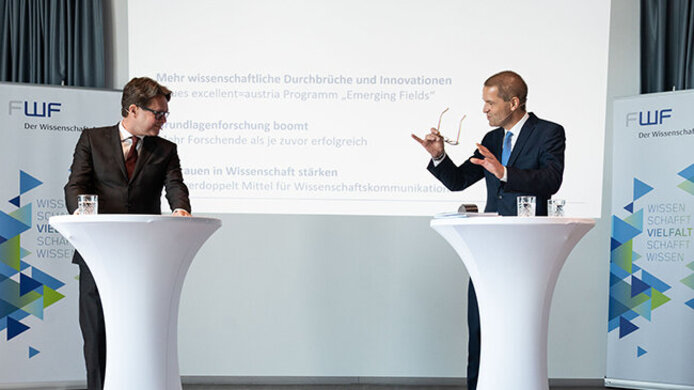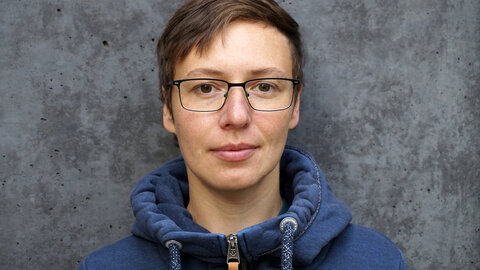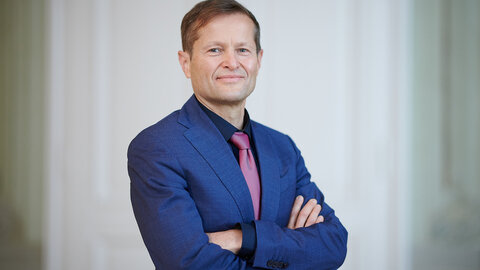FWF Sums up 2021: Austrian Basic Research on the Rise

Austria’s top-level research is on the rise. The growth trend can also be seen in the number of grants in third-party funded basic research. The amount of funding requested by researchers from the FWF increased sharply by 14 percent and exceeded the €1.2 billion-mark last year. Of this amount, the FWF was able to fund 732 research projects to the tune of €256 million. This represents an increase of five percent compared to the previous year. €104 million went to projects in the Natural Sciences and Engineering, €94 in Biology and Medical Sciences, and €57 million in the Humanities and Social Sciences. In total, the FWF is currently supporting 4,458 researchers in 2,588 ongoing projects at Austrian universities and other research institutions—more than ever before.
“Austrian top-level research continues to gain momentum, and the quality of the proposals and the demand for funding keeps increasing from year to year. Last year, 732 new projects were launched, each of which helps to strengthen the foundation for innovation, progress, and prosperity. Every euro of funding that Austria invests enhances its attractiveness as a site for research. The knowledge gained through this research contributes to building a better future for all people”, says Christof Gattringer, President of the Austrian Science Fund (FWF).
Austrian Minister of Science Martin Polaschek stressed the significance of basic research in general and underlined the importance of confidence in the sciences: “Without basic research, there would be no scientific breakthroughs. Researchers explore new horizons and provide expertise that we need to tackle the challenges of today and tomorrow. The economy and society also reap the benefits of their work. At the same time, we must make every effort to continue to increase people's confidence in science”.
Demand for third-party funding grows: Approval rates under pressure
The grant situation continues to be tight due to the greater number of applications and the outstanding quality of proposals. The surge in growth of universities and research institutions such as ISTA and ÖAW has already resulted in increased demand for third-party funding, with new institutions on the way like the Central European University or the planned Linz University of Technology. For several years, the number of applications has been growing at a significantly higher rate than the number of approvals, which leads to approval rates coming under more and more pressure and decreasing slightly in all disciplines.
Future potential: Two-thirds younger than 35 years of age
A look at the age distribution of all 2,588 ongoing FWF-funded projects reveals that more than two-thirds of researchers participating in FWF projects are younger than 35 years old. This underscores the importance of the FWF in the education and training of the next generation of outstanding researchers. The percentage of women is 47 percent.
Emergency assistance for researchers who fled Ukraine
Immediately after the war started, the FWF allocated a million euros in funding as crisis support for refugee researchers. As part of this initiative, refugee researchers can be included in ongoing research projects for up to 12 months. Thanks to the commitment of many principal investigators, roughly 25 refugees are expected to be included in research projects throughout Austria as early as in May.
New career advancement for postdocs launched successfully
In 2021, the FWF started its new ESPRIT career development programme. The aim is to provide postdocs with the best possible support during this decisive stage for many research careers. In the first two approval rounds, 34 researchers received funding, half of which were women. ESPRIT features additional career and skills development activities and measures specifically for women.
Focus on corona research: 44 projects approved
In 2020, the Austrian Science Fund (FWF) responded to the pandemic with an urgent funding procedure for corona research. Projects and studies were submitted by a total of 274 researchers, of which 44 were granted funding to the tune of roughly €15 million.
“Quantum Austria” research initiative begins
At the initiative of the Austrian Federal Ministry of Education, Science and Research (BMBWF), Austria is investing €107 million of funding from the NextGenerationEU Development and Resilience Plan in quantum research and technologies. The Austrian Research Promotion Agency (FFG) and the Austrian Science Fund (FWF) are working closely together on the allocation of funding. Since the programme was announced at the end of 2021, the FWF has sent a total of 23 proposals for review. First funding decisions will be made at the beginning of May.
International peer review with the world’s leading researchers
International quality standards also determine the FWF’s allocation of funding, with decisions being made solely based on the excellence of the proposed research. In 2021, the FWF sought approx. 5,800 international reviews from 67 countries, with most of the reviews coming from researchers in the USA, Germany, and the UK.
All funding statistics at a glance
You can find a review of 2021 and all the performance figures in this year’s FWF annual report. In addition, the new FWF Dashboard offers you access to all the key figures and statistics on the FWF’s funding programmes.





